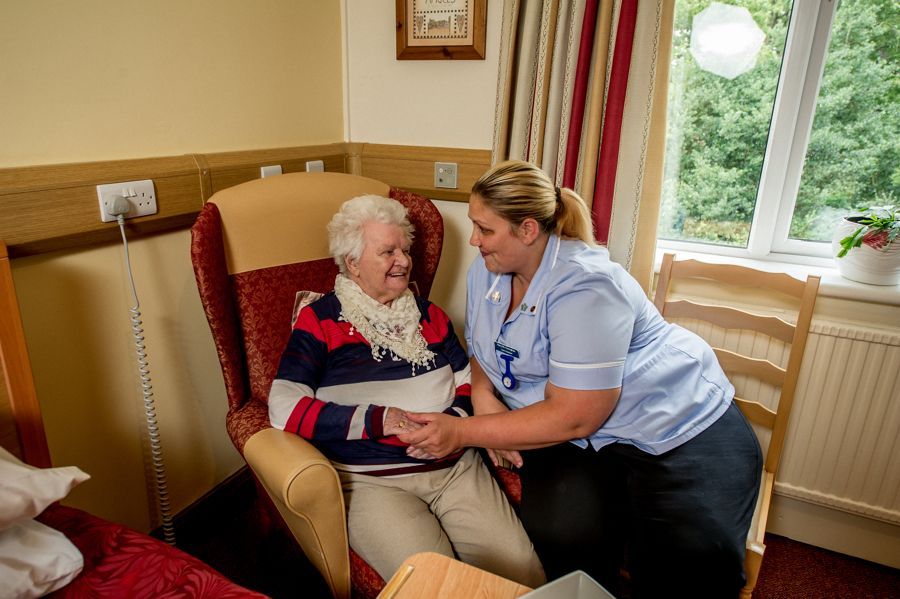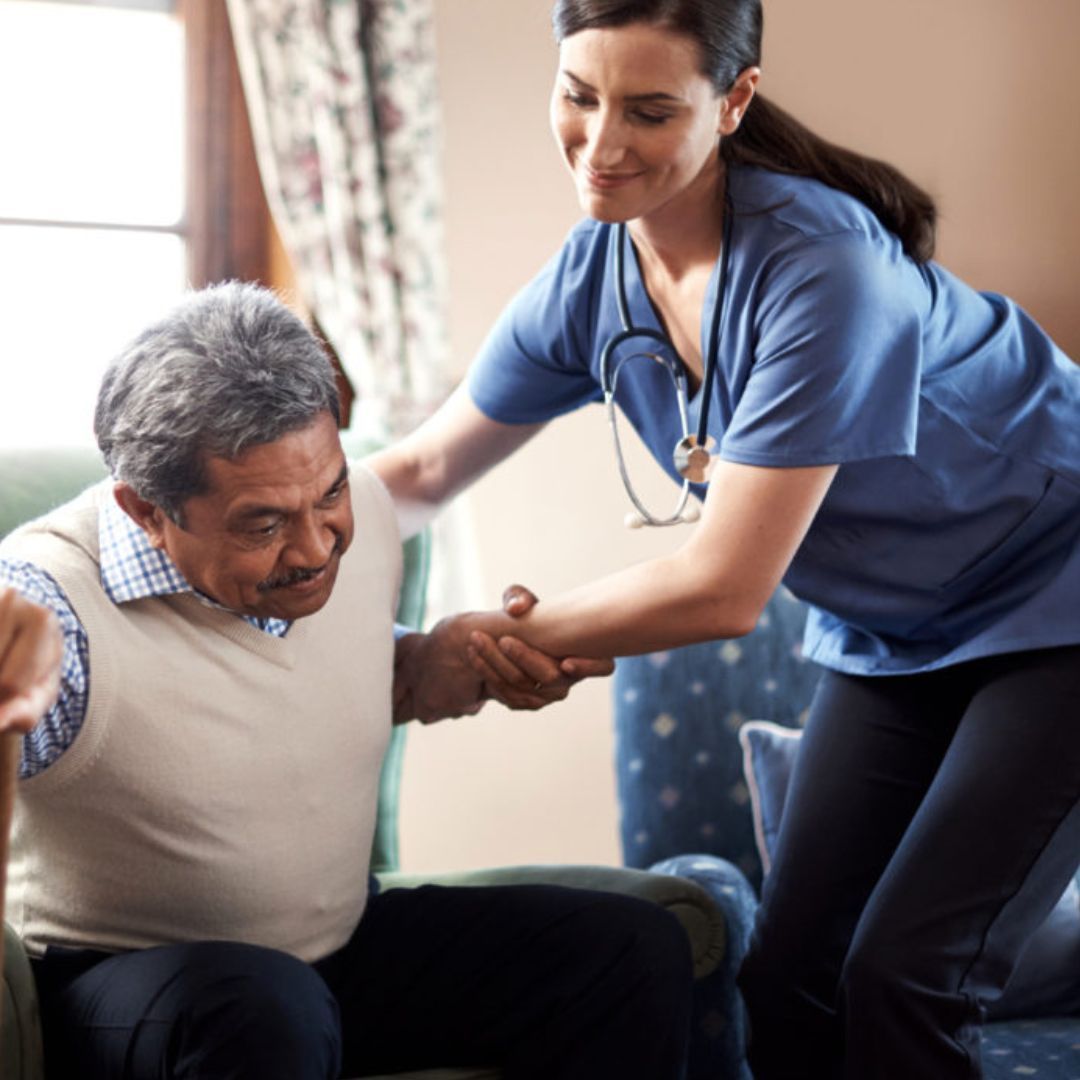24-Hour Live-In Care: Comprehensive Support and Assistance for Aging Loved Ones
24-Hour Live-In Care: Providing Comprehensive Support and Assistance for Aging Loved Ones

As the population ages, many families find themselves facing the challenge of caring for their elderly loved ones who may require round-the-clock support and assistance. With the increasing demand for personalized care for seniors, 24-hour live-in care has emerged as a popular option for families seeking high-quality care in the comfort of their own homes. In this article, we will delve into the concept of 24-hour live-in care, exploring what it is, how it works, and the benefits it can provide to seniors and their families. We will also examine the important role of live-in care as a targeted keyword in the caregiving industry.
What is 24-Hour Live-In Care?
24-hour live-in care is a type of home care service where a trained caregiver resides in the home of the senior client, providing round-the-clock care and assistance. Unlike other types of home care services where caregivers come and go on a scheduled basis, live-in caregivers stay in the home for extended periods of time, usually for several days or weeks at a time, providing continuous care and support. Live-in care is typically provided by trained and experienced caregivers who are able to assist with various activities of daily living (ADLs) and instrumental activities of daily living (IADLs) based on the specific needs and preferences of the senior client.
ADLs refer to basic self-care tasks such as bathing, dressing, grooming, toileting, mobility, and eating, while IADLs are more complex tasks such as medication management, meal preparation, light housekeeping, transportation, and companionship. Live-in caregivers are trained to provide personalized care to seniors based on their unique needs, health conditions, and preferences, allowing them to age in place and maintain their independence and dignity.
How Does 24-Hour Live-In Care Work?
24-hour live-in care typically begins with a thorough assessment of the senior client's needs by a professional care manager or a registered nurse. The assessment helps determine the level of care required, the specific services needed, and the preferences of the senior client and their family. Once the care plan is established, a trained live-in caregiver is selected based on their skills, experience, and compatibility with the senior client.
The live-in caregiver resides in the home of the senior client, usually in a separate bedroom or living quarters, and is available to provide care and assistance 24 hours a day, 7 days a week. The caregiver follows the care plan established during the assessment and provides personalized care and support to the senior client based on their needs and preferences. This may include assistance with ADLs and IADLs, medication management, companionship, and emotional support. Live-in caregivers also provide safety supervision, fall prevention, and emergency response, ensuring the well-being and security of the senior client at all times.
In addition to providing physical care, live-in caregivers also play a vital role in enhancing the emotional well-being of the senior client. They provide companionship, engage in social activities, and offer emotional support, reducing the risk of isolation and loneliness, which can have detrimental effects on seniors' mental and physical health. Live-in caregivers also provide respite care for family caregivers, giving them peace of mind knowing that their loved ones are in capable and caring hands.
What Are The Benefits of 24-Hour Live-In Care?
24-hour live-in care offers numerous benefits to seniors and their families, making it a popular choice for those seeking high-quality care in the comfort of their own homes.
Personalized Care:
Live-in caregivers provide one-on-one care tailored to the unique needs and preferences of the senior client. This allows for personalized care that is focused on promoting the well-being and independence of the senior client.
Independence:
Live-in care enables seniors to age in place and maintain their independence. Being able to stay in the familiar surroundings of their own home, surrounded by their belongings and memories, can significantly improve the emotional well-being and quality of life for seniors.
Continuity of Care:
With live-in care, seniors receive consistent care from the same caregiver, promoting continuity of care. This allows the caregiver to develop a deep understanding of the senior client's needs, preferences, and routines, leading to a higher level of care and comfort.
Safety and Security:
Having a live-in caregiver provides round-the-clock safety and security for seniors, especially those who may have mobility issues, memory concerns, or other health conditions that require frequent monitoring and supervision. Caregivers can prevent falls, respond to emergencies, and provide timely assistance, reducing the risk of accidents and promoting a safe living environment.
Companionship and Social Engagement:
Live-in caregivers offer companionship and social engagement, reducing the risk of isolation and loneliness, which can have detrimental effects on seniors' mental and physical health. Caregivers can engage in meaningful conversations, accompany seniors to social activities, and provide emotional support, improving their overall well-being.
Respite for Family Caregivers:
Live-in care can also provide much-needed respite for family caregivers who may be overwhelmed with the responsibility of caring for their aging loved ones. Having a live-in caregiver allows family caregivers to take breaks, rest, and tend to their own needs, reducing caregiver burnout and improving their ability to provide care in the long term.
Cost-Effective:
Live-in care can be a cost-effective option compared to other forms of care, such as assisted living or nursing homes. With live-in care, seniors receive personalized care in their own homes, avoiding the costs associated with facility-based care, such as room and board, and reducing the need for costly hospitalizations or emergency room visits.
Peace of Mind:
Knowing that a trained and experienced caregiver is available 24/7 to provide care and support can give peace of mind to both seniors and their families. Families can rest assured that their loved ones are in capable and caring hands, allowing them to have peace of mind and confidence in the care being provided.
How Much Does 24/7 In-Home Care Cost?
In Georgia, how much does private pay home care cost? According to the 2021 Genworth Cost of Care Survey, Georgia's average hourly rate for home care is $22.50, which is $4.50 less than the national average. The highest hourly wages are in Atlanta, Savannah, and Dalton, at roughly $25 to $27 per hour. Even so, those areas still have less expensive suppliers.

Welcome to a realm of unparalleled healthcare excellence! Quality Care Inhome Care Services is proud to announce that our Atlanta-based home healthcare agency has clinched the prestigious Consumer Choice Award, a testament to our unwavering commitment to providing top-notch healthcare services. In this article, we delve into the intricacies of our agency, highlighting the factors that set us apart and led to this prestigious recognition.

When it comes to providing around-the-clock care for your loved ones, two options often come to mind: 24 Hour Care and Live-In Care. While both options offer continuous care, it's important to understand the differences between the two and choose the one that best suits your loved one's needs. In this article, we will explore the distinctions between 24 Hour Care and Live-In Care , the benefits and drawbacks of each, and how to determine which option is right for your family.

Introduction In the bustling city of Atlanta, where the pulse of progress beats strong, there exists an extraordinary entrepreneur whose heart-driven mission has touched the lives of countless individuals. Meet Mr. Quality Care, a visionary with a passion for creating positive change in his community. As the founder and driving force behind Quality Care Inhome Care Services, Mr. Quality Care's journey is a testament to the power of heartfelt entrepreneurship.

When seeking care options for yourself or a loved one in Atlanta, understanding the differences between home healthcare and non-medical homecare services is essential. While both options aim to support individuals in the comfort of their own homes, they vary in terms of the level of medical assistance provided. In this comprehensive guide, we will delve into the distinctions between home healthcare and non-medical homecare services in Atlanta. By the end of this article, you'll have a clear understanding of each option and be better equipped to make informed decisions about your care needs.

Finding high-quality in-home care in Atlanta is crucial for our loved ones' health and wellbeing. When looking for help for elderly parents, people with disabilities, or those who are recovering from an illness or surgery, it's important to pick a home care provider who provides excellent care and comprehends the specific requirements of each person. We will examine the crucial elements to take into account while locating reputable home care in Atlanta in this complete guide. By the end, you'll have the knowledge you need to make wise choices and find the top local home care providers.

Alzheimer's disease and other forms of dementia present unique challenges for individuals and their families. As these conditions progress, individuals often require specialized care and support to ensure their safety, comfort, and overall wellbeing. In-homecare emerges as a crucial solution, offering tailored assistance within the familiar surroundings of their own homes. This article explores the importance of in-homecare for Alzheimer's and dementia patients, highlighting the benefits it provides and the key role it plays in enhancing their quality of life.

In today's fast-paced world, more and more individuals are seeking care options that allow them to receive assistance and support in the comfort of their own homes. Home-based care services have gained popularity, offering individuals the opportunity to age in place, recover from illnesses, or manage chronic conditions. Two common terms used in this context are "homecare" and "home healthcare." While they may seem similar, they have distinct differences in terms of the services provided, the level of medical care involved, and the qualifications of the caregivers. This article aims to provide a comprehensive understanding of these differences, helping individuals make informed decisions about the type of care that best suits their needs.

Promoting the wellbeing of the special needs community in Atlanta is of utmost importance in ensuring their overall quality of life and happiness. Quality in-home care plays a pivotal role in supporting individuals with special needs, empowering them to thrive and reach their full potential. This blog will explore the value of quality in-home care for Atlanta's special needs community, highlighting its impact on their physical health, emotional well-being, social integration, and overall quality of life.

Providing quality care for individuals with special needs is of paramount importance in fostering their overall well-being and enhancing their quality of life. In Atlanta, there is a growing recognition of the significance of tailored support through high-quality in-home care services. This blog will delve into the ways in which quality in-home care benefits the special needs population in Atlanta, highlighting the positive impact it has on their independence, social integration, and overall happiness.










